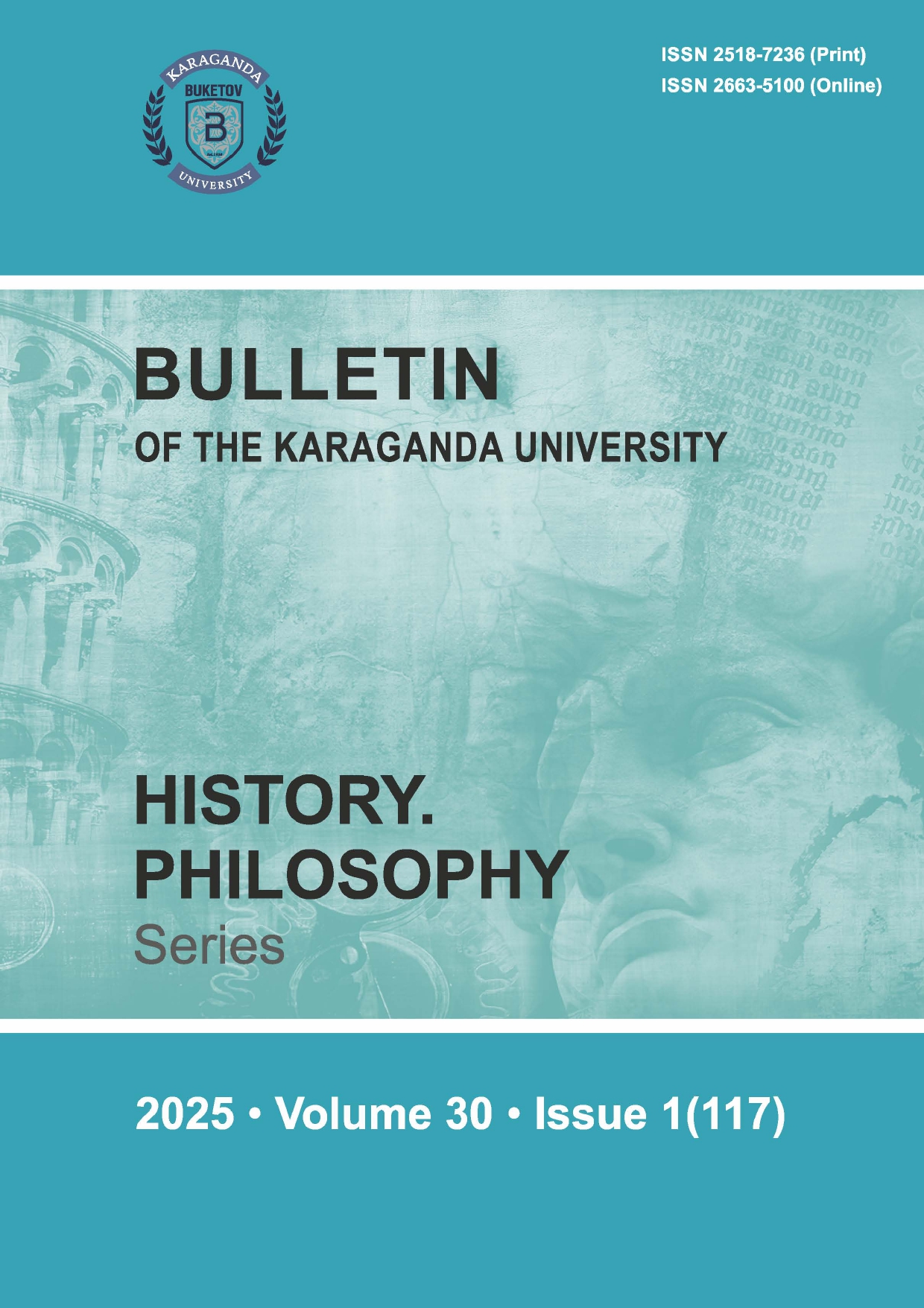Agricultural migrations to the steppe territory in the discourse of the leaders of the Kazakh intelligentsia (late nineteenth-early XX centuries)
DOI:
https://doi.org/10.31489/2025hph1/54-64Keywords:
agrarian colonization, Kazakh intelligentsia, migration movement, Sultan-Gazy Valikhanov, Alikhan Bukeikhanov, Steppe region, discourse, representationsAbstract
The article reveals the content of the discourse of agrarian migrations to the Steppe region in the representation of the leaders of the Kazakh intelligentsia. In the course of the study, it was found that in the late nineteenth and early twentieth centuries a consequence of the agrarian and ecological crisis in Russia was the development of projects for the mass resettlement of peasants in the Asian part of the empire. The reduction of the colonization fund of lands in the western part of Siberia opened up prospects for the movement of migration flows in the direction of the Steppe Territory. The initiatives and practical decisions of the central and regional authorities to intensify the settlement of the steppe regions, supported in the discourse of “guardians”, were negatively perceived in the liberal segment of Russian society and among representatives of the Kazakh steppe aristocracy. The leaders of the Kazakh intelligentsia, educated according to European-Russian standards,
were actively involved in the discussion of the prospects and possible Consequences of the Widespread Adoption of Agricultural Practices in the colonized region. In the multi-temporal publications of Sultan-Gaza Valikhanov and A.N. Bukeikhanov, positions were formulated and substantiated in favor of the advantages of the cattle-breeding type of economic activity in the Steppe region and the inefficiency of the dominance of agricultural forms of production in the economy




